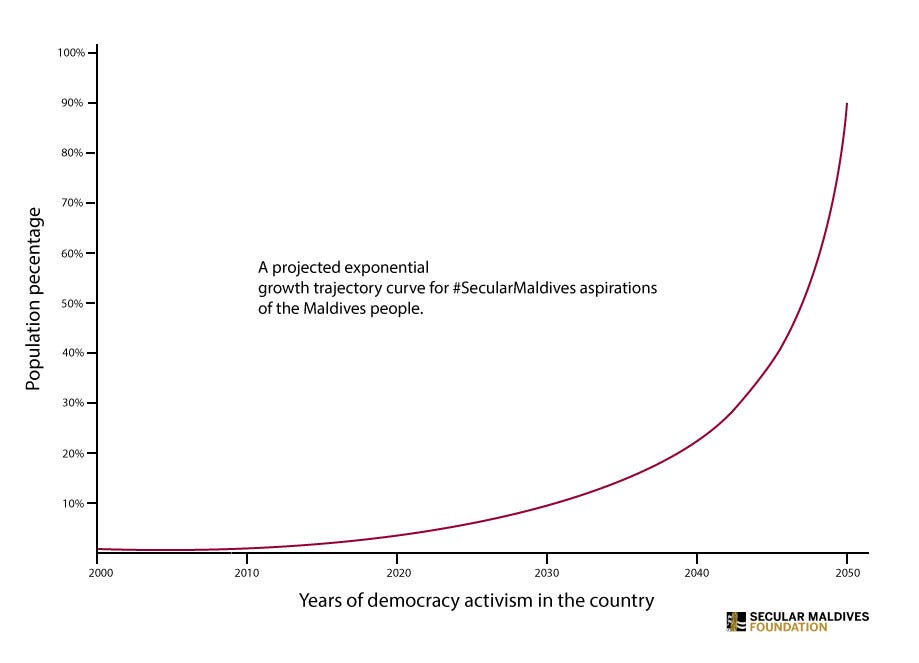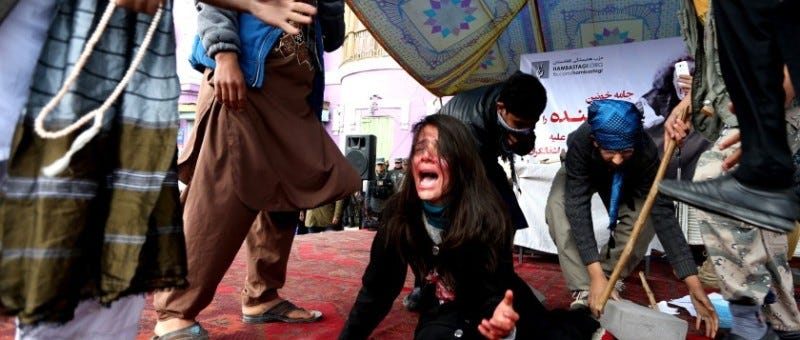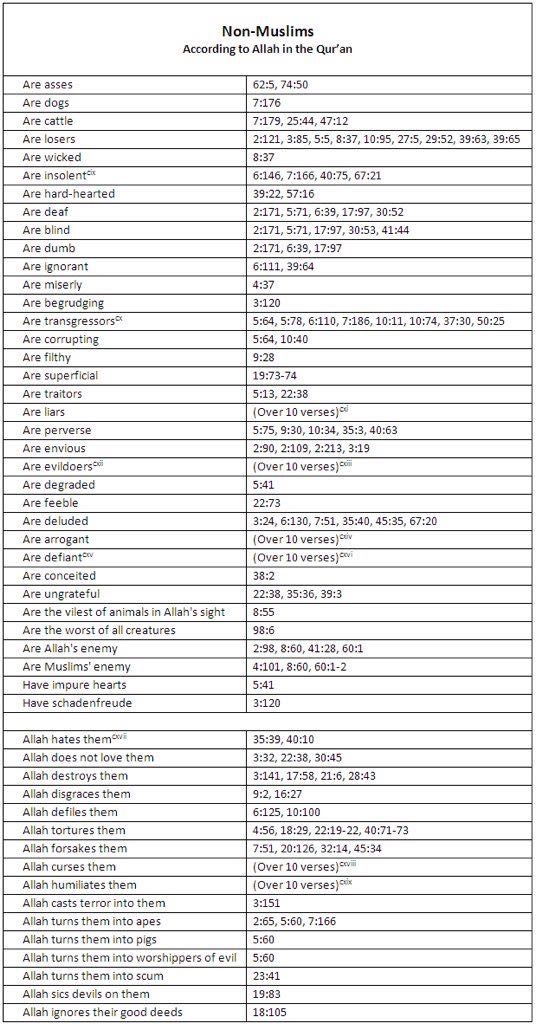“Blasphemy” is a form of Dissent!
My answer to the rather complicated question of why is Blasphemy necessary for dissent.
In a recent Twitter exchange, I broached the topic of blasphemy's significance in fostering #NormalizingDissent. This elicited a thought-provoking inquiry from someone I deeply respect and admire:
how is blasphemy dissent? how is making vulgar statements about sacrosanct beliefs moral and promote humanism? many say there exists a gradual path; and this sudden shock to existing beliefs does more harm than good
— moa (@wdddy) September 14, 2020
What set of this blog post.
This tweet sparked the inspiration for this blog post. Instead of crafting a brief response on Twitter, I've chosen to delve into a more comprehensive exploration of this complex question. So let’s get on with it, shall we? Read on.
The Fundamental Issue with Religious Doctrine
At the outset, it's essential to challenge the widely accepted "concept of blasphemy." This term is often perceived as something concrete, yet it is anything but. Blasphemy is a construct, a tool wielded by religious entities—essentially highly organized cults—that base their authority on narratives lacking empirical foundation, often steeped in delusional and magical thinking. The primary function of this concept is to suppress any form of dissent against these religious ideologies.
This leads us to question the necessity of critiquing these beliefs. Excluding the aspect of personal belief or disbelief (which should inherently be a matter of individual choice), the critique becomes crucial when these religious groups leverage their doctrines to shape laws and policies. These policies, once legislated, impact every individual within that jurisdiction, enforced through the full weight of the state's machinery - from the military to law enforcement, judicial systems, and even execution. Such imposition results in widespread harm and human suffering, contradicting the tenets of humanism.
Moreover, the problem doesn't stop at state-level enforcement. We also witness vigilantism, where individuals or mobs take it upon themselves to enforce these religious edicts. This often leads to violence, loss of life, and severe infringement of human rights. Here, one cannot help but reflect on the actions of groups like Al Qaida, ISIS, Taliban, Boko Haram, and similar entities, as well as others motivated by religious nationalism, such as certain Hindutva factions. To remain silent in the face of such violence is antithetical to humanist values.
But the tentacles of religious dogma extend further, infiltrating family and community dynamics. Under the guise of maintaining 'social norms' and 'cultural values,' these groups perpetrate acts of violence such as acid attacks, honour killings, and social ostracization. These actions not only cause immediate physical harm but also lead to long-term psychological trauma, mental health issues, and, in extreme cases, suicide. The failure to speak out against such atrocities, especially in an era marked by global connectivity and a sophisticated understanding of human rights, is a betrayal of humanist principles.
As humanists, we have a duty to uphold and advance the progress made in human rights globally. Our silence in the face of religious encroachment on civil liberties is a step backward. We must actively engage in preserving these hard-won rights for future generations, ensuring that they inherit a world where human rights are not just protected but are continually advanced. This commitment to progress is not just a choice; it's an ethical imperative for anyone who subscribes to humanist values.
The Crucial Role of Blasphemy in Questioning and Progress
Understanding the importance of blasphemy in contemporary discourse requires recognizing its varied interpretations. What one individual or group deems blasphemous could be perceived by another as a mere expression of curiosity or a quest for understanding. This delineation is not always black and white; often, it exists in a complex spectrum of grey. Criticisms of human rights violations, or even participating in political discussions surrounding these issues, can be labelled as blasphemous depending on the religious context and the perspectives of those in power. This variability in interpretation is a crucial aspect of why blasphemy is significant.
Blasphemy, in its most fundamental sense, challenges the established norms and doctrines of religious entities. In doing so, it becomes a tool for scrutinizing and questioning the status quo. This is especially relevant when religious teachings and practices lead to direct human rights violations under the guise of preserving religious freedom and protecting the dominance of a particular belief system. The existence of blasphemy laws is a testament to this conflict, where the protection of religious sentiments often trumps the preservation of basic human rights and freedoms. Such laws are inherently susceptible to abuse, particularly by those who wield power, and they often serve as instruments for suppressing dissent and controlling narratives.
Moreover, the concept of blasphemy is pivotal in the context of humanism. At its core, humanism advocates for a world where human rights, ethical reasoning, and equality stand at the forefront. Blasphemy, in challenging religious dogmas that often contradict these values, becomes an essential expression in the humanist toolkit. It is not just about rejecting or mocking religious beliefs; it is about asserting the right to question, to think critically, and to hold all forms of authority—including religious ones—accountable.
In societies where religious ideologies heavily influence or even dictate state policies, the role of blasphemy becomes even more pronounced. It acts as a beacon for those who seek to promote secularism, rationality, and a world where laws and policies are made based on human welfare and ethical considerations, rather than religious doctrine. The act of blasphemy, therefore, transcends mere criticism of religion; it becomes a statement in favor of a more equitable, rational, and humane world.
Because of these reasons, blasphemy is not merely a rebellious act against religious norms; it is a profound statement in support of human rights, a call for rational discourse, and a step towards a more humanist society. Its significance lies in its ability to provoke thought, challenge unjust practices, and inspire change in pursuit of a world where human rights are not just an ideal, but a reality for all.
Confronting Religious Hostility: A Humanist Perspective
One might question the rationale behind direct confrontation with the deeply ingrained beliefs of many. Should this challenge not be equally directed at both secular and religious ideologies? Before I address this query, let's focus on the context of Islam, especially given its profound impact on societal norms in places like the Maldives and elsewhere, such as the Middle East. This reflection is vital, as Islam, the faith we are predominantly exposed to here, encapsulates a narrative that merits scrutiny.
The above image vividly encapsulates the extensive list of pejoratives that Islam, through its sacred texts, ascribes to non-believers. This nomenclature institutionalizes a form of hostility towards a significant portion of humanity.
Consider the demographics: Islam is followed by approximately 24% of the global population. This statistic leaves a staggering 76% classified under the broad term 'unbelievers,' encompassing a diverse tapestry of faiths and philosophies, including secular worldviews. The significance of this delineation lies in its universal application within Islamic theology, which does not recognize the nuanced differences among those who do not adhere to its creed. Instead, it collectively dismisses them, often during early education in madrasas and schools, teaching that such 'unbelievers' are destined for eternal damnation. This pedagogy systematically devalues the humanity of the majority of the world's population.
How can this minority viewpoint, harboured by only 24%, be deemed acceptable? While the notion of an eternal hellfire is a theological construct I reject, the intent behind such teachings is clear: if you are not a follower of Islam, your existence is devalued. This perspective leaves little room for genuine mutual respect or recognition of shared humanity. Any deviation from this stance often appears as nothing more than a strategic facade, tailored to the political zeitgeist rather than a sincere acknowledgment of equality.

It is within this framework of dehumanization that we find the genesis of countless human rights abuses attributed to Islamic doctrine. The acts of violence executed by extremist groups are not aberrations but the logical consequence of an ideology that systematically devalues 'the other.' To argue that this interpretation is incorrect is to overlook the palpable influence of such indoctrination on the actions of its adherents.
I do not claim that all Muslims will engage in acts of violence. However, there is a significant number – in the millions – who, emboldened by their interpretation of Islamic teachings, take it upon themselves to enforce these doctrines. This phenomenon is not an anomaly; it is a recurring pattern that we must acknowledge and confront as a global society.
Addressing this issue is not an assault on personal faith but a defence of our shared humanity. It is a call to action for humanists and all who value human rights to challenge ideologies that propagate hate and justify violence. By doing so, we affirm our commitment to a world that respects and upholds the dignity of every individual, regardless of their beliefs.
Strategic Blasphemy: A Proactive Stance on Existential Threats
The collective impact of religious dogmatism poses a tangible existential threat to many of us. Faced with this reality, the question arises: should we adopt a pacifist stance? My unequivocal response is a resolute no. Passivity in the shadow of aggression is tantamount to surrender. I value my singular existence and the lives of others far too greatly to submit to doctrines that diminish our shared humanity. In this transient life, we find ourselves navigating a universe indifferent to our plights and delights. Purpose and meaning, while not intrinsic to the cosmos, are the essence of the human experience. It is within our capacity, as sentient beings, to cultivate joy, foster wellbeing, and alleviate suffering.
Given my personal journey and the atrocities I have borne witness to, the notion of a slow, undefined path toward change is no longer tenable. Transformation begins with a direct challenge to the ideologies that necessitate it. Societal shifts occur when individuals evolve, and the Overton Window—the range of policies politically acceptable to the mainstream population at a given time—does not move without this collective change in mindset. People evolve through introspection, which is often sparked by challenging conversations about their core beliefs. It is imperative that we, especially those of us who are safe from violence and persecution, engage directly and robustly in these difficult but necessary dialogues. It is through such engagement that we can hope to reach a consensus and foster change.
Blasphemy, in this context, is more than just an act of defiance; it is a strategic catalyst for progress. The ultimate goal of our dissent is to achieve secularism within governance, to extract religious influence from the levers of state power. By disentangling religion from public policy, we strive to ensure that the state serves all its citizens, not just those of a particular faith. The mission is clear: to secure a societal framework where religion does not dictate the quality or direction of our collective lives. It is through strategic blasphemy that we pave the way for a society founded on secular, humanist principles—one that upholds the autonomy and dignity of every individual.

—
About the featured image of this post: Afghan artists reenact the mob killing of Farkhunda Malikzada, 27, an Afghan woman who was beaten to death on March 19, 2015, after being falsely accused of burning a copy of the Koran in Kabul.
Source: LA Times







